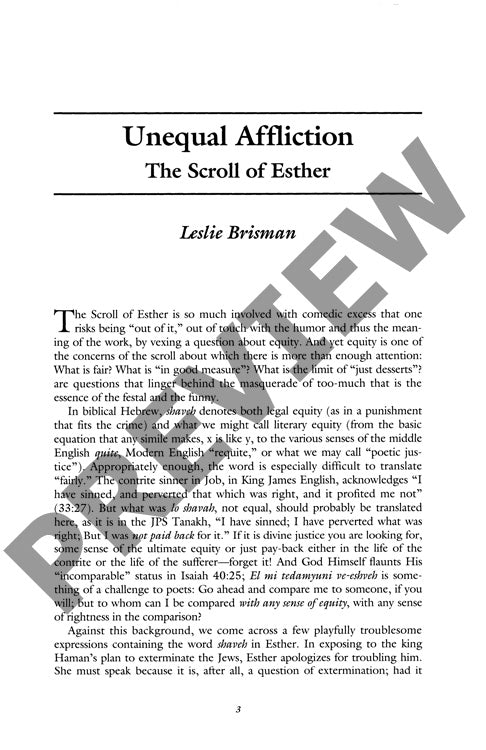Unequal Affliction the Scroll of Esther
Couldn't load pickup availability
The Hebrew word *shaveh* - signifying both legal and literary equity - emerges as a powerful lens for examining divine justice and theological critique in the Scroll of Esther. When traced through the speeches of Esther and Haman, this term reveals intricate patterns of proportionality and requital operating across multiple narrative levels. Philological examination of Hebrew terminology, comparative translation analysis, and literary interpretation of comedic elements expose a sophisticated theological tension within the text. While the scroll's comedic excess initially appears to reinforce traditional notions of divine providence and Jewish election, deeper linguistic and narrative analysis unveils a more complex critique. The Jews' violent response to their enemies, the blurred moral distinction between Jewish restraint and Persian excess, and the problematic conversion of Persians under threat of death all challenge straightforward interpretations of divine favoritism. The text maintains deliberate theological ambiguity, simultaneously affirming traditional Jewish chosenness while subtly questioning nationalistic theology. This dual interpretive possibility constitutes the scroll's essential literariness, with comedy serving not merely to validate orthodox perspectives but to interrogate fundamental assumptions about justice, equity, and divine election in ways that enrich rather than resolve the theological tensions.

More Information
-
Physical Description
-
Publication Information
Published 2000
ISBN
-
Publication Credits
Leslie Brisman

